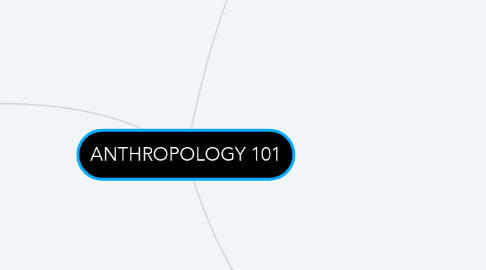
1. ch.3 Genetics
1.1. the cell
1.1.1. prokaryotes
1.1.1.1. single celled organism with no nucleus
1.1.1.2. single strand DNA
1.1.1.3. possibly first life on earth
1.1.2. eukaryotes
1.1.2.1. multi celled organism
1.1.2.2. we are eukaryotes
1.2. DNA
1.2.1. packaged in chromosomes
1.2.2. genetic code
1.2.2.1. Adenine (A)
1.2.2.2. Thymine (T)
1.2.2.3. Guanine (G)
1.2.2.4. Cytosine (C)
1.2.3. backbone of DNA created of phosphates and sugars
1.2.3.1. when you eat something they make you
1.2.4. becomes protein
1.2.4.1. DNA - RNA - Protein
1.2.4.2. DNA goes out nucleus into the cell where the cytoplasm is ribbosome then amino acids then protein
2. ch.1 Anthropology
2.1. 4 branches of anthropology
2.1.1. archaeology
2.1.1.1. investigating of human past by means of excavating and analyzing artifacts popular ex: Indiana Jones
2.1.2. linguistic
2.1.2.1. the study of of human language in the past and present ex: Eskimos have many different variations of word snow
2.1.2.1.1. discriptive- analyze language by comparison
2.1.2.1.2. historic - study how language change over time
2.1.3. physical
2.1.3.1. the study of human biological evolution and bio cultural variations
2.1.3.1.1. combination of genetics and environment
2.1.4. cultural
2.1.4.1. study of cultures and societies in human beings and past times
2.2. what makes humans different than animals
2.2.1. bipedalism
2.2.1.1. walking on two feet
2.2.1.2. Darwin believed b/c we no longer lice where it's full with tress we needed to evolve and change the way we move around
2.2.2. nonhoning canine
2.2.2.1. reliant on cooking not hunting
2.2.3. material culture
2.2.3.1. complex material culture
2.2.4. hunting
2.2.4.1. helped with speech and communication
2.2.5. speech
2.2.5.1. only ones with hyoid bone which helps with speech
2.2.6. domestication
2.2.6.1. our brain size and intelligence allows us to communicate
2.2.6.2. we retain information and knowledge then pass it on generations
3. ch.2 Evolution
3.1. Charles Darwin
3.1.1. collected basis of social altering theories
3.1.2. started in England then moved all around the world
3.1.3. HMS Beagle
3.1.3.1. identified and categorized species
3.1.3.2. there had to be one species to begin all of the species of finches
3.1.3.2.1. with adaptation and natural selection species begin to make the changes
3.1.4. Theory of Evolution
3.1.4.1. geology
3.1.4.1.1. study of earth
3.1.4.2. Paleontology
3.1.4.2.1. study of fossils
3.1.4.3. taxonomy & systematic
3.1.4.3.1. study of classification and relations of organism
3.1.4.4. demography
3.1.4.4.1. study of populations
3.1.4.5. evolutionary bio
3.1.4.5.1. study of organisms and their changes over time
3.2. evolution synthesis
3.2.1. mutation
3.2.1.1. random change in gene or chromosome adding a change
3.2.1.1.1. extra gene in 21 chromosome leads to down syndrome
